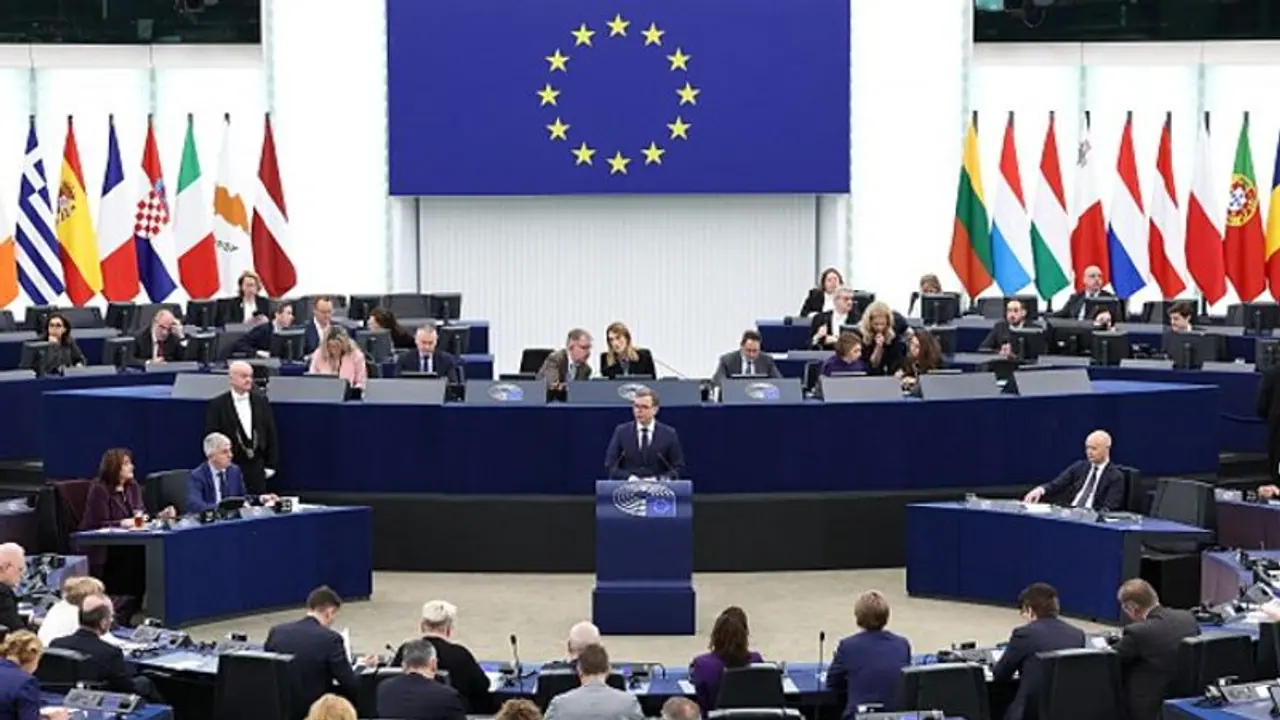The European Parliament on Wednesday adopted a new EU media freedom law designed to protect journalists from political interference and to improve transparency on media ownership. The legislation was backed by 464 lawmakers, with 92 against and 65 abstaining.
The European Parliament on Wednesday adopted a new EU media freedom law designed to protect journalists from political interference and to improve transparency on media ownership. The legislation was backed by 464 lawmakers, with 92 against and 65 abstaining. This landmark legislation imposes obligations on EU governments to enhance safeguards for media outlets, shielding them from malicious interference and curbing the usage of spyware against journalists.

Additionally, media organizations will be mandated to provide transparent disclosures regarding ownership, funding sources, and state advertising.
To ensure effective enforcement of these regulations, a specialized EU entity, the European Board for Media Services, will be established, tasked with overseeing the implementation and adherence to the provisions outlined in the Act.
The European Union's decisive action comes in response to pervasive disinformation, opacity surrounding media ownership, and escalating challenges faced by journalists. These issues prompted the implementation of comprehensive new regulations, representing the EU's inaugural endeavor to protect the free press, a fundamental pillar of European democracy.
Roberta Metsola, President of the European Parliament, hailed the adoption of the Act as a historic moment, recognizing it as a crucial step forward. She paid tribute to the memory of courageous journalists like Malta's Daphne Caruana Galizia and Slovakia's Ján Kuciak, who tragically lost their lives while fearlessly exposing corruption and abuse of power.
Věra Jourová, European Commissioner for values and transparency, told the parliament on Tuesday the law would send a “clear message to those who want to weaken democracy.”
"It is a threat to those who want to use the power of the state, also the financial one, to make the media dependent on them," Jourová added.
Sabine Verheyen (Germany, EPP), the primary legislator overseeing the legislation, emphasized the Act's potential to liberate media from state influence, particularly amid concerns of declining press freedom in various member states. While certain northern EU nations, such as Ireland, Finland, and Sweden, consistently rank among the world's top countries for media independence, others lag behind significantly, with Greece placed at a mere 107th globally.
Verheyen underscored that the newly established European Board will play a crucial role in holding both governments and media services accountable by offering impartial assessments and facilitating conflict resolution. Despite calls from the parliament for the Board's secretariat to be independently appointed to ensure autonomy from the Commission, Verheyen cited "legal structures" as a barrier to this implementation.
The Parliament had aimed for the legislation to impose a complete prohibition on the utilization of spyware against journalists, following reports of incidents involving software like Pegasus and Predator being utilized to compromise the devices of reporters in Greece, Hungary, Poland, and Spain.
“We would have liked stronger wording when it came to spyware, but that wasn’t something we could achieve," Verheyen acknowledged.
However, a select few member states, including France, Italy, Malta, Greece, Cyprus, Sweden, and Finland, advocated for an exemption permitting governments to intercept conversations between journalists and their sources in the event of a national security threat.
Verheyen clarified that under the new legislation, EU governments would only be permitted to deploy spyware against journalists as a last resort, contingent upon a valid legal rationale. She further stated that journalists whose devices are compromised on grounds of national security must be fully informed of the actions taken against them. Verheyen assured that there would be "no restrictions on the investigative work carried out by journalists."
Sophie in 't Veld, a Dutch MEP representing the centrist Renew group, expressed satisfaction with the newly imposed restrictions on spyware. However, she cautioned the European Commission against allowing EU governments to persist in undermining media freedom and the rights of journalists.
In a statement to the parliament on Tuesday, in 't Veld highlighted the reluctance of several governments within the European Union to undergo scrutiny. She urged the Commission to rigorously enforce the new regulations and prevent member states from evading their responsibilities.
In response to her concerns, Jourová affirmed, "We will be watching how the member states deal with the clear task of establishing truly independent enforcement bodies."
The legislation will now return to the Council for further deliberation before it can be formally ratified into law.
